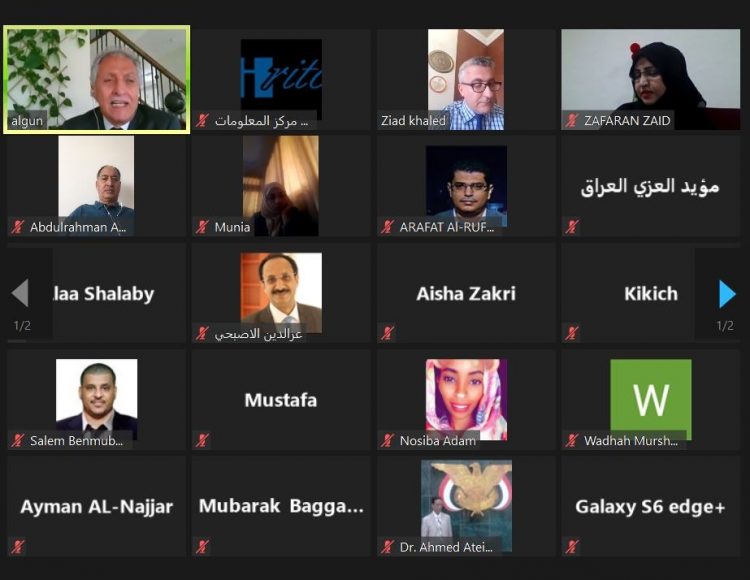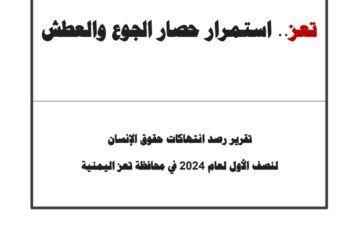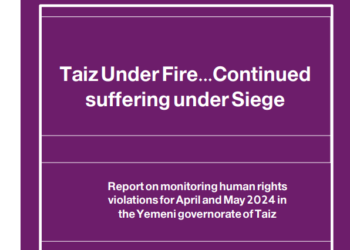HRITC: Follow-up of perpetrators of torture crimes at the forefront of the tasks of human rights organizations
—–‐——
Taiz /
Human Rights Information & Training Center – HRITC affirmed that the follow-up to the perpetrators of torture crimes in Yemen and their accountability, whether national or international, is at the forefront of the tasks of human rights organizations and international actors.
HRITC statement said at the conclusion of a symposium on torture in Yemen on the occasion of the International Day in Support of Victims of Torture that there are at least 13,000 detainees, kidnappers and disappearances held in nearly 300 prisons in Yemen that follow different parties.
In the symposium, which was organized through direct visual communication technology, Dr. Abdel Qader Al-Junaid presented a live testimony about a full year experience in the cellars of Al Houthi prisons and his transfer within a year in fifteen detainees and different cells in Sanaa.
Confirming that they were all negative for Adamiyah,
The brutality of torture is indescribable.
Many of the torture sessions were intended to break people’s wills and subjugate people, to spread intimidation in various circles, and not just to obtain information.
He stressed that he saw hundreds of detainees who were kidnapped for logical reasons and the views of sectarian and racial fanaticism, no more, and that the Houthi group made the kidnapping and torture of people a source of revenue and profited through ransom trade and release in exchange for huge money.
On the other hand, Lawyer Alaa Shalaby, President of the Arab Organization for Human Rights, said that torture cases need a societal and international pause that works to end the tragedy of the times, and that those responsible for cases of violations will remain subject to legal prosecution, where justice paths cannot be established without redressing the victims and punishing the guilty.
The symposium, in which a group of leaders of human rights work in the Arab region participated, discussed the necessity of giving the support of victims of torture a high priority of support and support and strengthening the path of transitional justice, which is based on stopping any violence and torture, providing justice to the victims, and compensating the perpetrators for their crimes.
The symposium also called for not forgetting the severity of the torture inflicted on the families of the detainees and their families, as they remain vulnerable to violations, torture and continuous psychological collapse.
Eventually, Human Rights Information and Training Center – HRITC on statement at the end of the symposium called for the international mechanisms to assume their responsibilities in the investigation and follow-up of the perpetrators of crimes in Yemen and other regions.
Civil society should begin to develop a clear roadmap to strengthen the path to stop violence, end torture and hold accountable those responsible for all violations or advocates of violence.
Video of the symposium in Arabic:








